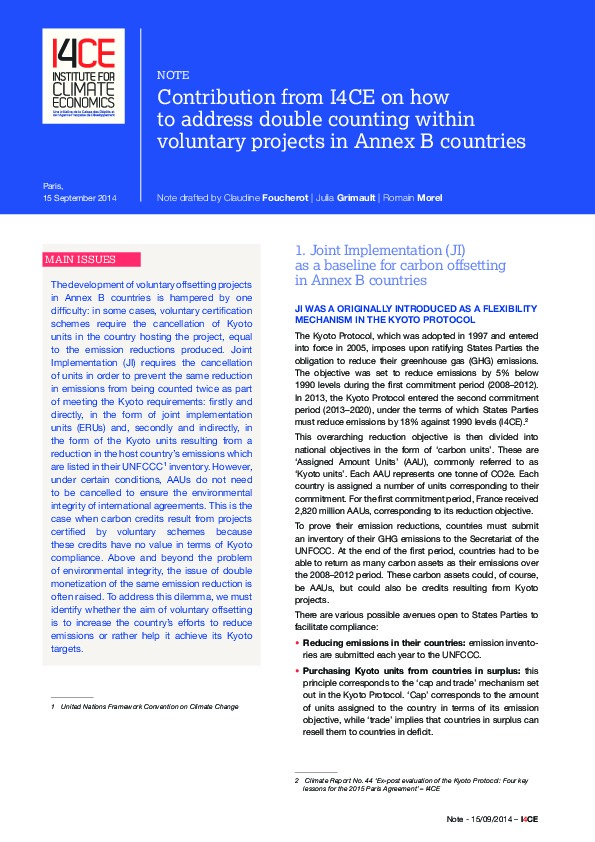Note: contribution from I4CE on how to address double counting within voluntary projects in Annex B countries
Double counting of emission reductions is one of the main issues concerning the development carbon offset projects. This question is crucial for JI projects (Joint Implementation- Kyoto Protocol) but stakes are different for voluntary offsetting.
This note aims to explain the issue of double counting and more specifically, the issue of double monetization and double claiming of emission reductions and why the cancellation of AAUs in the voluntary context is not necessary, unless it aims to increase States’ targets.
